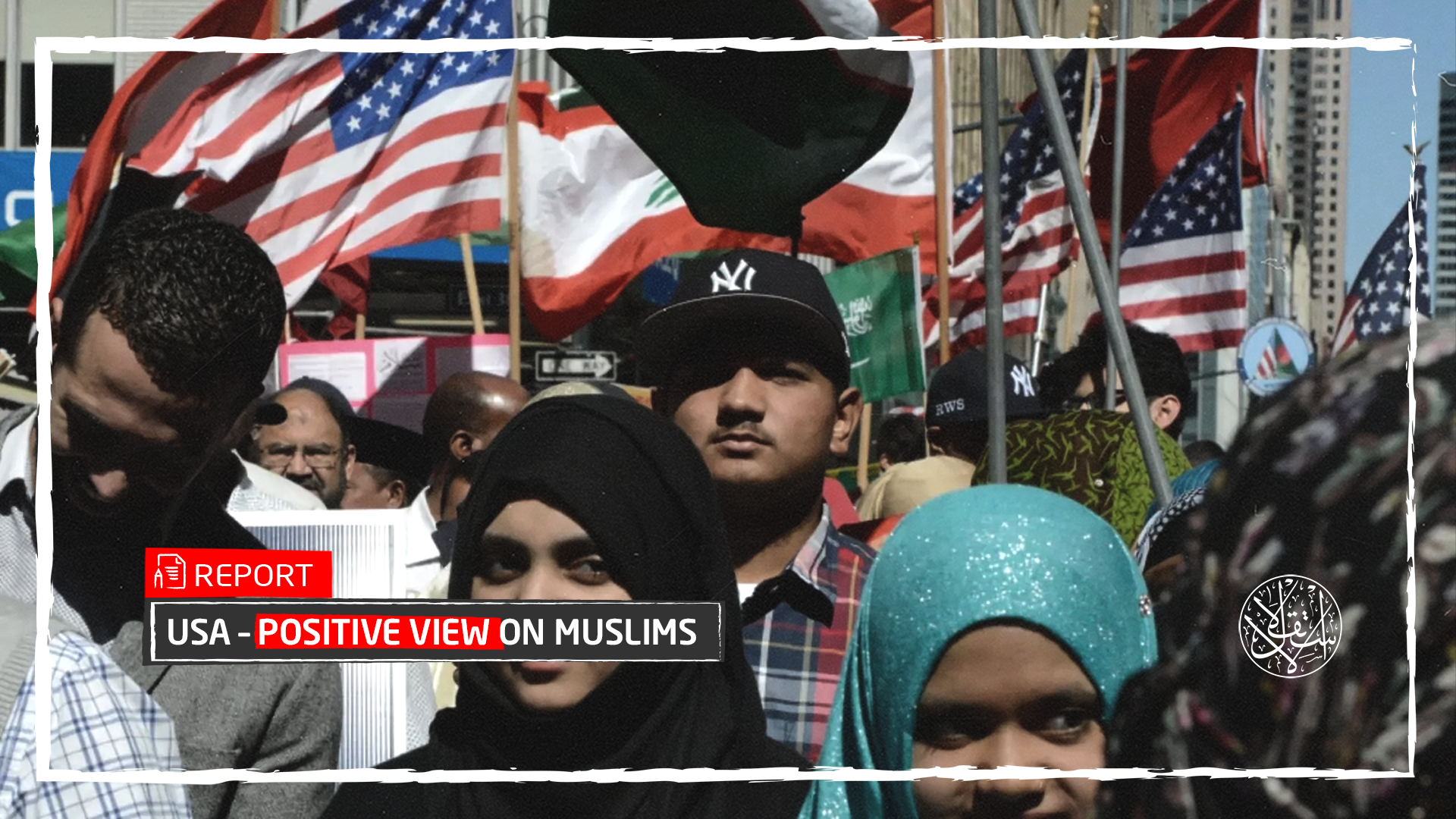The Positive View of Muslims in the US Is Increasing, Despite the Rise in Islamophobia Incidents

A 2022 poll conducted by Brookings Institute revealed that the number of US residents holding Islamophobic views has decreased, and may actually be shrinking, even as hate crimes increase.
The Brookings report indicated that as abhorrent and dangerous the white-supremacist ideas are, there is reason to believe that they are not spreading, even as their holders have grown louder, undeterred, and more dangerous. This opinion is backed by survey data that university researchers have tracked over several years.
Even with the rise in hate crimes, pro-Muslim views in the United States have risen significantly over the past seven years, according to what he published on the British Middle East Eye website.
The report stated that in 2016, 58% of those polled by the Brookings Institution had a positive view of Muslims, but by May 2022, this number had risen to 78%.
“The anti-Semites and anti-Muslims are becoming alarmingly emboldened but shrinking,” the authors of the new report note. They added that Americans’ views on Muslims had been shaped by the rise of Islamic rhetoric after the attacks Muslims were subjected to during the years of US President Donald Trump’s administration.
They added that as Trump targeted Muslims in his campaign, more Americans, especially Democrats and independents, seemed to rally behind Muslims, even as anti-Muslim rhetoric expanded.

Hate Campaigns Back-fired
Those polled by Brookings expressed the lowest percentage of opposition against a Jewish presidential candidate compared to any other religion. Only 5% of Republicans and 7% of Democrats said they would vote against the Jewish presidential candidate. This number was lower than those who would oppose a Catholic or Protestant candidate.
On the other hand, dissenting views of an Islamist presidential candidate were much higher. Forty-four percent of Republicans and 26 percent of Democrats said they would reject a candidate because of his Islamic faith.
Despite this high level of opposition, the poll indicates that both Republicans and Democrats are slowly coming to terms with the idea of voting for a Muslim candidate. The total number of dissidents decreased from 31% in 2016 to 26% in 2022.
Despite the upside in positive opinions, there has been a significant increase in attacks on Muslim and Jewish groups. This indicates an increase in anti-Islamic and anti-Semitic attitudes.
Nevertheless, American Muslims were still targeted. The Council on American-Islamic Relations documented a 9% increase in Islamophobia incidents compared to 2020 and the highest number of civil rights complaints in 27 years, including a 28% increase in hate and prejudice incidents.
Given this rise, the report’s authors note that it might be easy to infer that there has been an increase in the number of people expressing these views but that the intensity of hate, or what we call vertical expansion, has not led to an increase in their number.

Positive View: Why?
In an interview with Al-Estiklal, Dr. Tareq al-Suwaidan said: “I can say that the Islamophobic media campaigns attacking Muslims were for the benefit of Muslims because a counter-awareness in favor of Islam emerged from it. Moreover, waves of conversion to Islam followed. It was an opportunity for Muslims to respond, to clear up their positions and convictions.”
He explained: “Muslim representatives had been invited to media programs to shed light on their ideas. The western values of diversity, pluralism, and openness allow people to argue for different opinions. It opened up a space for us that was not granted before. We were able to reach audiences we couldn’t reach before. The hate speech and discrimination against Muslims had backfired and turned out to be in the Muslims’ interest in the end.”
The associate professor of American Studies and Ethnicity at USC Dornsife, Evelyn Alsultany, attempted to answer the question: How did Muslims come to be included in diversity plans in the US? Through her research, she highlighted whether this happened in the wake of crises or moments that made it clear that Islamophobia was a problem.
The professor explained: “Diversity initiatives born out of crisis can produce important social change, but responding to a momentary flare up as opposed to longstanding structural inequality limits the extent of possible change. Social change requires addressing the root of the problem primarily located in a history of US foreign policies that dehumanize Muslims.”

Muslim Organization’s Role
Since the Immigration and Nationality Act of 1965, which is considered the beginning of a major shift in the history of Muslims in American society, thousands of Muslim organizations have been created to contribute to social and political life in the US. The Act led to a change in the nature of Islamic organizations in the country and their role, scope, and diversity and contributed to the removal of many of the restrictions that were previously imposed on immigration. These organizations, along with individual initiatives, had a prominent role in shaping the way Americans view Muslims.
These organizations followed a three-step approach: student activities, expansion into the community by strengthening their presence within specific occupational categories, such as doctors and engineers, and the establishment of political organizations.
On March 15, 2022, it was decided to introduce the resolution on International Day To Combat Islamophobia after the General Assembly unanimously adopted resolution A/76/L.41, in which the text calls for expanding international efforts to create a global dialogue that promotes tolerance and peace and focuses on respecting human rights and the diversity of religions and beliefs.
The representative of Pakistan, whose country introduced the resolution, said that Islamophobia or Islamophobia had emerged as a new form of racism that included, among others, discriminatory travel bans, hate speech, and targeting of girls and women because of their dress.
He added Islamophobia is a reality, pointing out that more efforts are necessary to address this phenomenon. Hate speech, discrimination, and violence are spreading in many parts of the world, causing great distress to Muslims elsewhere.










